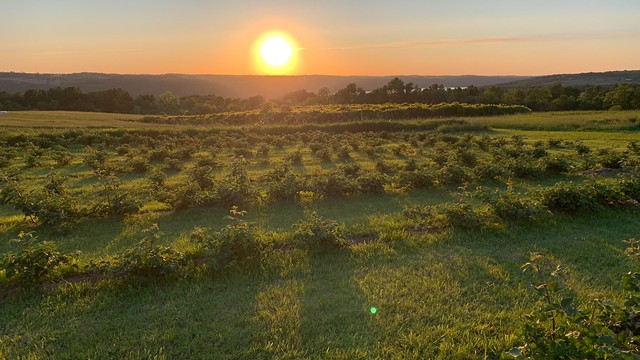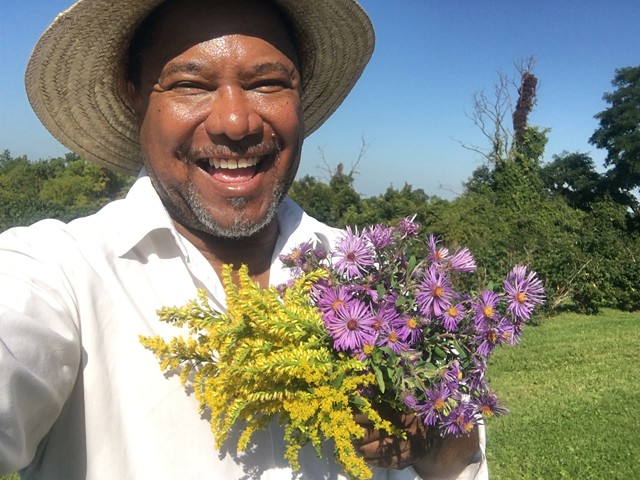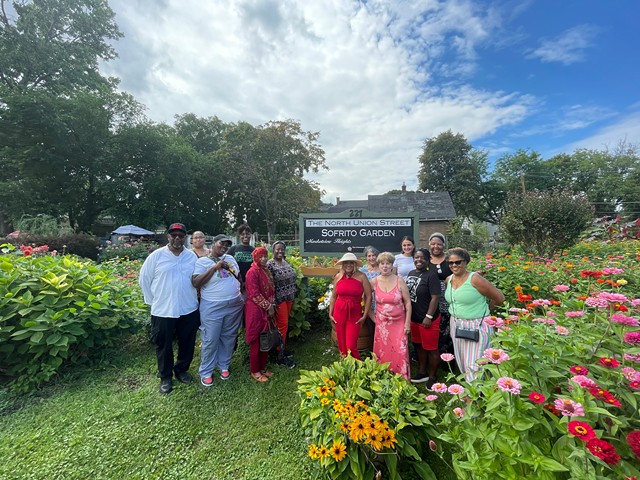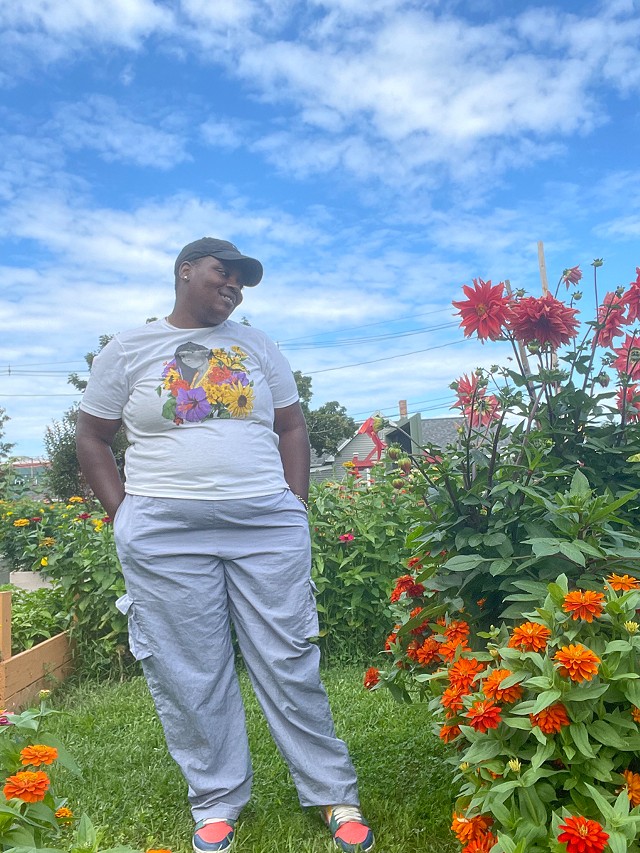
- PATRICK HOSKEN
- Richard McCollough, a meteorologist and media professional by trade, grows berries and other plants for herbal teas at Weatherfield Farm near Conesus Lake.
His first order of business? Finding some land.
When a realtor showed him 12 acres in Livingston County just above Conesus Lake, he grabbed it. “I never considered a farm or anything like that,” he said. “I was thinking about land.”
Eighteen years later, he grows blackberries, raspberries, wild grapes, autumn olive shrubs and more at Weatherfield Farm, which is perhaps the sole herbal tea farm in the Finger Lakes region. It’s also one of several Black-owned agriculture operations in the area, including urban-growing initiatives in the city of Rochester.
McCollough used to commute to the farm from Rochester, but moved into a nearby colonial-style house with big windows in April 2020. While he remains the chief meteorologist at WDKX and produces documentaries through his company MirusMedia, his heart stays on that land among the wild blossoms and nesting Canada geese.
“When I'm laying in my bed, I can see the stars,” he said. “I can sit here and see the storm systems coming in, the different kinds of clouds: nimbostratus, rain clouds, mid-level clouds and cirrus.”

- PHOTO PROVIDED
- Richard McCollough snaps a selfie on Weatherfield Farm.
His neighbor plowed a 50-by-100 plot, allowing him to lay down more than 100 blackberry plants he got from Nourse Farms in Massachusetts. Every year, folks from church help him harvest. Early on, Cornell University horticulture professor Marvin Pritts advised McCollough every step of the way.
“When they see you're working hard and you want to learn, people do help,” McCollough said. “That's the good thing about humanity.”
Pritts said collaboration is key for all types of agrarians. Berry crops need to be mulched to get them through the winter, though that can take a long time by hand. A machine speeds up the process, but small growers likely won’t invest in equipment they only use once a year.
“It makes a lot of sense to partner with somebody so everybody doesn't have to buy their own specialized piece of equipment,” Pritts said.
For Tonya Noel, that equipment sometimes includes a pickup truck for hauling materials. Noel co-runs the Flower City Noire Collective and heads up several urban gardens around Rochester. She credits the assistance from other folks in the community, along with growers like 490 Farmers and Moss Fresh Fruit and Vegetables in Albion.

- PROVIDED PHOTO
- The Flower City Noire Collective helps cultivate green spaces for Black urban growers in Rochester that often rely on collaboration with other farms.
The city’s Department of Environmental Services provides compost from street sweeping and yard waste, though it is not recommended to use for growing produce, so Noel partners with cannabis farms across the Finger Lakes region to get food-grade compost for her gardens.
An ultimate goal of the Noire Collective is to build and run a farm of their own, likely somewhere west of Rochester along the New York State Thruway. It would only be natural, Noel said, given their many partnerships in the Buffalo area.
She stressed environmental justice as a core tenet of the organization’s mission centering around collective work, sustainability and understanding.
“Even with me running three urban gardens, doing workshops and giving away bags of dirt, it won’t resolve the issues,” Noel said. A farm would help the collective scale up.

- PHOTO PROVIDED
- Tonya Noel co-founded the Flower City Noire Collective in 2016.
“We're really blessed to live in one of the best agricultural regions in the world,” he said of the Finger Lakes region. “We have such a diversity of growers, crops and restaurants that it is really a huge asset to our community and something that should be celebrated.”
Back on Weatherfield Farm, McCollough celebrates by taking stock of what farming has given him.
“The longer I live out here, I just feel closer to the earth,” he said. “You know the earth is alive.”
Patrick Hosken is an arts writer at CITY. He can be reached at [email protected].
